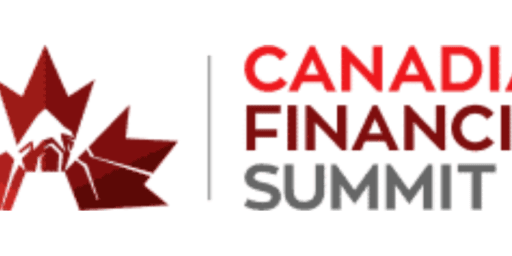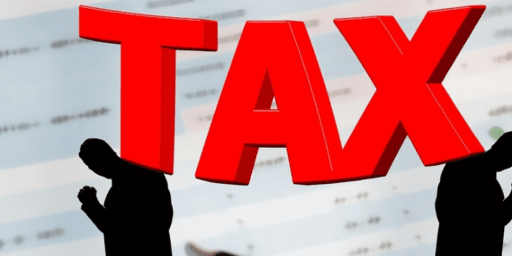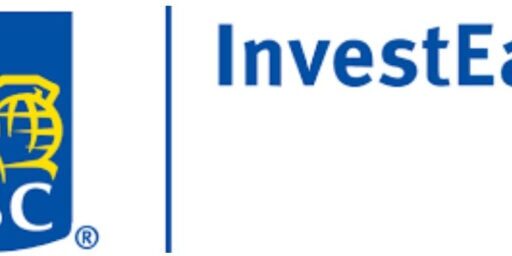Easy Index Mutual Fund Portfolios with the Big Banks
Over the years while helping readers, friends, and co-workers with investing, I’ve come to the conclusion that convenience is of the highest priority, even if it means paying higher fees. Most people simply want to stick with their current banking institution and have no interest in opening a discount brokerage of their own.
Having said that, if they “must” stay loyal to their bank and their mutual funds, I usually recommend that they pick their bank’s index funds as they will likely have the lowest fees of the mutual funds offered.
A new graduate at work recently asked me about investing and told me about the mutual funds that he is invested in. While it’s great that he is investing at a young age, he is currently invested in mutual funds that average 2.5% MER. My calculations show that a 1.7% reduction in MER results in a 60% portfolio size after 30 years…. 60%! I believe in corporate profits as much as the next capitalist, but excessive MERs simply do not add value to investors.
So what do we do about my young friend with expensive mutual funds? The path of least resistance is to switch to the bank’s index funds which would drop the portfolio MER from 2.5% to approximately 1%.
To help clarify which funds they should pick, here are the index funds offered by each of the big banks and their associated fees. What I am aiming for is a portfolio that includes:
- Canadian equity index;
- US equity index (non-hedged);
- International equity index; and,
- Canadian bond index.
CIBC
- CIBC Canadian Index Fund (MER 1.14%);
- CIBC US Index Fund (MER 1.18%);
- CIBC International Index Fund (MER 1.24%); and,
- CIBC Canadian Bond Index Fund (MER 1.17%).
Royal Bank of Canada
- RBC Canadian Index Fund (MER 0.72%);
- RBC US Index Fund (MER 0.72%);
- RBC International Index Fund (MER 0.71%); and,
- RBC Canadian Government Bond Index Fund (MER 0.67%).
Toronto Dominion Bank
- TD Canadian Index Fund-I (MER 0.88%);
- TD US Index Fund-I (MER 0.55%);
- TD International Index Fund-I (MER 1.00%); and,
- TD Canadian Bond Index Fund-I (MER 0.83%).
TD also offers an e-series of mutual funds with extremely low MERs. Among my favorite mutual funds out there and I use them for our family RESP.
- TD Canadian Index Fund-e (MER 0.33%);
- TD US Index Fund-e (MER 0.35%);
- TD International Index Fund-e (MER 0.51%); and,
- TD Canadian Bond Index Fund-e (MER 0.50%).
Scotia Bank
- Scotia Canadian Index Fund (MER 0.98%);
- Scotia US Index Fund (MER 1.02%);
- Scotia International Index Fund (MER 1.14%); and,
- Scotia Canadian Bond Index Fund (MER 0.86%).
Bank of Montreal
- BMO Canadian Index Fund (MER 1.05%);
- BMO US Index Fund (MER 1.17%);
- BMO International Index Fund (MER 1.15%); and,
- BMO Core Bond Fund (MER 0.95%).
While the majority offer index funds in the 1% range, the RBC and TD e-series funds stand out from the pack. However, as previously mentioned, switching from your bank’s expensive under-performing active mutual funds to your bank’s index mutual funds will likely result in a much bigger retirement nest egg for you.
Alternatives with Smaller Banks
EQ Bank’s Saving Account Offers Close to 2% Annually. It is Canada’s best saving account.
I've Completed My Million Dollar Journey. Let Me Guide You Through Yours!
Sign up below to get a copy of our free eBook: Can I Retire Yet?












I was wondering what your thoughts were regarding VASGX as a USD Mutual Fund to be held in a RRSP?
Hello.
Does Desjardins offer these as well?
Thanks
Francois
Hi,
I’m a not so recent graduate in her late 20’s and I just got into financial planning and savings. I currently have a take home of $3,200 per month with the hopes of getting a better job after sitting for a certification exam. I have approximately $30k in savings (all in my TFSA account and not invested). I bank with TD and would like to stay with them
Where would be a great way to stay building financial wealth – something with low risk?
Hi FrugalDiva, good on you for socking away $30k in cash! If invested in a balanced index portfolio returning 7%, adding $5k to the portfolio every year, you’d have $733k after 30 years in your TFSA. Not bad right?
So the next question is, how do generate 7% returns over the long term? You won’t get that sitting in cash, the money needs to in appreciating assets – I suggest index mutual funds/ETFs. In terms of low risk, the sp500 has never lost money over any 20 year period. So although the indexes are volatile (some years up, some years down), I’m betting that over 30 years, you’ll have a decent average return. You can even smooth out the volatility even more by adding more bonds to your asset allocation (but this will drag on your returns slightly).
Here are some articles that may help:
https://milliondollarjourney.com/a-simple-low-cost-diversified-etf-portfolio.htm
https://milliondollarjourney.com/top-6-indexing-options-for-your-portfolio.htm
https://milliondollarjourney.com/how-does-the-stock-market-work-in-canada.htm
Hi,
I was informed that to invest in index mutual funds with Td, I would need to open a direct investing account. How easy is this for someone with no investment knowledge?
Is there a minimum I can invest with to get a better understanding of how this works?
I have my TD e-series funds with TD easy web, so I think that you may have been misinformed about needing a direct investing account. Having said that, the mechanics of buying/selling mutual funds is not complicated. Actually, it may be easier to open a self-directed account to buy an all-in-one ETF. Just buy one product with your savings and done! Save even more with opening a self-directed account with a brokerage that doesn’t charge commission when you buy ETFs. Here is an article that may help:
https://milliondollarjourney.com/all-in-one-etfs-battle-vanguard-vs-ishares-vs-bmo.htm
can you explain why scotia international index is not 100% equities at this time? it looks like 50% Canadian fixed income. does this have something to do with being related to futures contracts?
That’s a good question Marc. I’m going to do some digging.
I’m a graduate student who just got into financial planning. I didn’t know any better and have just been putting money into a CIBC mutual fund. I guess my question is that should I just ask to switch my CIBC mutual fund to the CIBC Canadian Index Fund?
James, I would look into a diversified portfolio. Ask about mutual fund indexes in Canada, US and international. Also a bond fund if you want to reduce volatility along the way.
Just found your website and was reading through this article. I am currently 53 years old and not planning to retire till my late 60’s. I have aGroup Retirement Savings Plan through my work and RBC. I have approximately $100,000 in it solely invested in mutual funds. I am thinking of transferring these to the RBC index funds after reading a few of your articles. I dont like to be too conservative. Which of the index funds would you recommend and which asset allocation would you recommend or suggest based on my age. Thank you
Hi Randy, as for asset allocation, check out this article:
https://milliondollarjourney.com/a-simple-low-cost-diversified-etf-portfolio.htm
Hi this is my very first question. I have to convert to an annuity by end of the year. I have mutual funds with RBC, mostly Canadian equity, and precious metals. Should I convert all to index funds?Can I do this after end of 2017?
Thanks
Hi Charles, do you mean that you need to convert your RRSP to an RRIF? Or that you are purchasing an annuity at the end of the year? If you are converting to an RRIF, an index approach is efficient, just keep in mind your asset allocation.
I have mutual funds and etf’s with a full service broker. I just opened a Questrade account. If I transfer those funds to QT (where the identical fund fees are significantly lower) will the fees instantly be reduced?
Forgive my ignorance but when it comes to the MER, if i currently have my RRSP investments tied up in a mutual fund that carries an MER of 2.5% and i wanted to switch to index mutual funds, wouldnt the MER be about the same?
Ex, for the BMO index funds listed above:
BMO Canadian Index Fund (MER 1.05%);
BMO US Index Fund (MER 1.17%);
BMO International Index Fund (MER 1.15%); and,
BMO Core Bond Fund (MER 0.95%).
If you add up the MER you get 4.32%. I assume you have to average them out to get the realistic MER you are being charged? So if I had 100% of my RRSP spread out in 20% Canadian Index, 20% US Index, 20% International and 40% Bonds, my actual MER would be somewhere around 1.1% instead of 2.5%?
Thanks in advance
@Duke, as you said, you average the MER, you don’t add them up. So for a BMO index portfolio, the MER would be close to 1%. The 1.5% difference in MER for your portfolio will make a significant difference in your portfolio size over 30 years.
I tried recently to help a relative switch from having all her registered account holdings invested in a single high-MER balanced fund to being invested in the appropriate asset allocation but using the bank’s index funds. The push-back was beyond belief and only be escalating the issue to the bank manager were we able to make the change desired. This took place at Scotiabank.